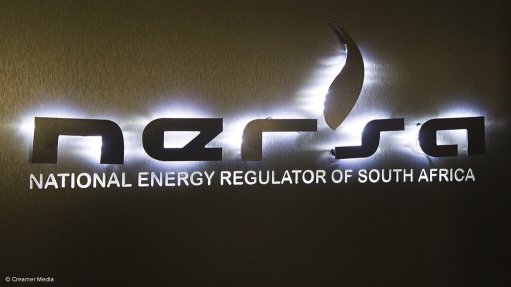Regional developments expected to ignite South Africa’s gas economy
There has long been discussions about the development of a gas economy having the potential to help transform the South African landscape and, despite the impact of the Covid-19 pandemic, about gas emerging as a game changer both in terms of its role in the country’s energy transition and the new opportunities it presents.
These opportunities for South Africa are likely to arise directly from the megascale liquefied natural gas (LNG) projects that are starting to take shape in northern Mozambique, as well as various other projects in and around the country.
“The potential industrial uses for natural gas have long been topics of conversation in South Africa, from using natural gas as a fuel to produce much-needed electricity and thus avoid load-shedding, to substituting natural gas where other more expensive, and likely more environmentally damaging, fuels are currently in use,” says Deloitte Africa Oil and Gas consulting driver Derek Boulware.
A broader use of natural gas in the South African economy could play a role in improving economic conditions, as it could spur new industry growth and decrease reliance on other fuel types, he says.
This could accelerate the potential for a healthy gas sector in South Africa, which is already well placed to serve as a permanent hub providing services and expertise for oil and gas in Africa.
Africa’s economies are some of the fastest growing in the world, and while oil and gas activity will initially focus on exploration, there is a value chain development opportunity as domestic markets for oil and gas products mature, including logistics, refining, wholesale and retail consumption.
The development of a gas economy offers not only the promise of export revenue but also the chance to spur the development of domestic markets, and, with further gas discoveries likely, attention is now turning to local markets to understand how potential gas demand can be unlocked closer to the resources, research and consultancy group Wood Mackenzie says in a note to Engineering News & Mining Weekly.
The biggest opportunities of the giant gasfields discovered on the continent over the last decade lie within the industrial sectors, particularly within export-focused facilities, and in the power sector, despite a bullish outlook for hydropower and renewables.
“If upstream gasfields can be developed at prices low enough to justify export, then these will be more competitive than many other sources of baseload power, particularly oil products and imported coal,” Wood Mackenzie adds.
With increasing pressure to scale down the use of coal as feedstock for power generation, gas is a logical, reliable alternative, says South African Oil and Gas Alliance (Saoga) CEO Adrian Strydom.
A recent PwC report shows that, globally, natural gas is expected to overtake coal by 2030 to become the world’s second-leading fuel, as the increasing regulatory drive to decarbonise reduces the share of coal in the global energy mix and drive demand for natural gas.
“It makes absolute sense for us to move increasingly to gas as an energy source, both from a cost benefit and carbon footprint reduction perspective. I believe the next five years will see a move away from coal to gas and renewables as complementary energy sources,” Strydom comments.
Boulware agrees, noting that almost every traditional oil and gas player is working to improve carbon emissions and sees natural gas as a critical piece of its decarbonisation strategy.
“This is stimulated by government as well. Mechanisms like carbon taxes have been implemented to encourage the use of cleaner fuels. All of these elements combined point toward natural gas playing a key role in the future economy of the Southern African Development Community region,” he explains.
The United States Agency for International Development’s Southern African natural gas roadmap shows that, in unlocking further supply of cleaner energy, the development of natural gas resources can bring real benefits to economies, generating employment, increase gross domestic product (GDP) and raise foreign direct investment.
“The value chain associated with extracting natural gas can create substantial, permanent employment opportunities – direct and indirect. In addition, using natural gas locally supports industrialisation, such as the creation of fertiliser and petrochemicals industries, which also has positive effects on employment and GDP.”
Game-changing opportunities can include attracting major investment, boosting manufacturing and increasing reindustrialisation, thereby eventually developing a home-grown ecosystem of locally manufactured products and gas.
However, there is a need to plan for the systemic development of the gas value chain and promote investment and regional gas supply and imports, as well as infrastructure development and employment creation for Africa, says Strydom.
Further, the African Free Trade Agreement can provide gas opportunities and development across Africa.
Saoga recently adopted a regional sub- Saharan strategy that will see the creation of opportunities to directly engage with the demand for products and services across borders.
“We envisage a process where we move from gas imports to regional gas to indigenous gas for local use and eventually LNG export.
“It is important, though, to synchronise gas supply and demand. We can only increase supply based on increased demand, but, at the same time, we need reliable supply of gas to get users to switch to gas.”
At this stage, the most likely catalyst for a South African gas industry will come from neighbouring Mozambique, where several well-known private global oil and gas players are busy developing the reserves in the form of LNG, says Boulware.
These projects, together with project expansion phases and additional exploration, have the potential to position Mozambique as the third-largest LNG producer in the world after Qatar and Australia by 2030, PwC notes.
“There are several of these projects envisioned which will take place within Mozambique. These include gas-to-liquids (GTL), fertiliser, small-scale LNG, LNG bunkering and methanol-to-olefins, to name a few. What has become quite clear, however, is that there will still be a large quantity of natural gas that can be used in a more regional context,” Boulware says.
In time, the benefits and various spin-off developments of the megascale project will extend to other territories in Southern Africa.
While the Covid-19 pandemic dragged global markets downwards, leading to what is expected to be a 4% contraction in demand, mostly in Europe, Strydom believes that, post Covid-19, funding will pour into infrastructure projects.
Prioritising infrastructure projects could be the leverage needed for South Africa to bolster its gas economy potential as it struggles to pull back from the impacts of the Covid-19 pandemic.
Boulware notes that the gas market for South Africa is a “bit of a chicken and egg” scenario.
“We have demand for the fuel, but there is a lack of requisite infrastructure to support a gas industry, and private businesses are taking the first step with an ‘if you build it, they will come’ mentality.”
Private companies are taking up the reins, leading to a strong likelihood of developing a burgeoning gas market in South Africa in the short term. After the initial infrastructure is in place, additional uses for gas can be considered.
“Why not switch to gas for uses like mining, transport, ship bunkering, GTL and gas-to-power? If we have a secured source of natural gas and a way to use it to generate electricity, we could certainly improve energy reliability in the country – not to mention many products could be made from natural gas, like fertilisers and petrochemicals.”
Further, it is likely that LNG and compressed natural gas can be sold on South African forecourts in the near future, he says, referring, in part, to a partnership formed for the development of 12 to 18 LNG filling stations across the country by 2023.
The gas will be liquefied through a small-scale LNG facility at the Virginia Gas Project, in the Free State, which will also be producing some of the world’s biggest quantities of helium.
The LNG fuel itself will be used mostly by logistics companies in their long-haul trucks, and the cost savings are estimated to be between 15% and 25%.
Emerging natural gas and helium producer Renergen CEO Stefano Marani says the world is pushing to reduce running costs as much as possible, and dedicated filling points in South Africa, which are being established through a partnership between Renergen and Total South Africa, give certainty to customers.
The first route targeted under the agreement with Total will be the N3 between Johannesburg and Durban, followed by the corridors leading to the other major cities once Renergen’s Phase 2 project comes into production.
These filling stations will be up and running by the start of the third quarter of 2021.
Renergen is also in the construction phase of South Africa’s first commercial LNG plant and is expecting a turn-on date for the plant around the third quarter of 2021.
In addition, South Africa still has additional potential for indigenous natural gas production within its borders, Boulware comments, referring to further drilling in the Brulpadda discovery off Mossel Bay, which is expected to start in the coming years to further appraise and hopefully prove the reserves of this field.
Total and its partners announced the Brulpadda gas and liquids discovery off the Mossel Bay coast in February 2019.
Strydom comments that the promising find is significant.
“South Africa is relatively underexplored for oil and gas and the successful Total find off Mossel Bay is drawing attention to South Africa as a potential oil and gas exploration hub.”
In August, Mineral Resources and Energy Minister Gwede Mantashe welcomed the arrival of the DeepSea Stavanger oil and gas drill rig in Cape Town, which had been commissioned by Total and its partners to drill the Luiperd prospect in Block 11B/12B.
“The arrival of the drill rig, following the recent successful Brulpadda discovery, reaffirms confidence in South Africa as an investment destination of choice for the exploration of oil and gas,” Mantashe says.
He explains that the rig formed part of Total’s $400-million oil and gas exploration drilling campaign with an expected R1.5-billion to be spent in South Africa through the hospitality industry, offshore services and equipment, training and contracting of local companies to support the drilling programme.
This investment will further enable South Africa to diversify its energy mix, as envisioned in the Integrated Resources Plan, by using all the primary energy resources that the country is endowed with, including gas.
“Government will be supporting this project by finalising the Upstream Petroleum Bill, which aims to strike a balance between the need to attract investment into this key sector of the economy and ensuring that oil and gas activities do not happen at the expense of the environment and water resources,” he assures.
The Africa Gas Forum says this has set the stage for a significant contribution to the nation’s economic development, as it will assist in reducing dependence on imports of oil and gas, notwithstanding the considerable reserves believed to exist in its territorial soil and waters.
This will consequently translate into benefits for South African workers and contractors across the value chain, creating employment opportunities for people far and wide.
“We are certainly seeing a significant increase in foreign industry interest and welcome the resulting jobs and investment into South Africa,” Strydom adds.
“More discoveries like this could be out there but largely remain nascent, owing to the lack of regulatory clarity and attractiveness on the upstream side in South Africa,” Boulware points out, noting the urgent need for the finalisation of the Upstream Petroleum Resources Development Bill.
The Draft Upstream Petroleum Resources Development Bill 2019 was published for comment on December 24.
Saoga outlines a number of national policy documents, including the White Paper on the Energy Policy of South Africa approved in 1998; the National Development Plan (NDP); the draft Integrated Energy Plan; and the Integrated Resources Plan 2010 to 2030, which present the case for natural gas as a significant contributor to South Africa’s energy mix.
Wood Mackenzie explains that the most obvious way by which a government can influence this is by providing clear guidance on which parts of the domestic market should be prioritised and how much gas the country may need or would be able to absorb, where, and by when, in a phased supply.
“Developing a robust, countrywide gas masterplan early on is a key step to achieving this and ensuring optimal gas monetisation in the domestic market.”
“A strong gas masterplan needs to be detailed, with enough granularity to ensure a successful outcome. In developing a masterplan, governments need to make choices on what their relative priorities are, such as creating employment opportunities, ensuring the transfer of knowledge and technical capability for the local population and generating early revenues, while also taking into consideration regional gas dynamics and gas quality.
“To create a successful market, participants need to plan for one. Developing a clear understanding of domestic market priorities, ensuring value chain integrity is prioritised and gas is priced at both an affordable level for consumers and a profitable level for producers and explorers. This will allow African exporters to capitalise on their gas export boom.”
Comments
Press Office
Announcements
What's On
Subscribe to improve your user experience...
Option 1 (equivalent of R125 a month):
Receive a weekly copy of Creamer Media's Engineering News & Mining Weekly magazine
(print copy for those in South Africa and e-magazine for those outside of South Africa)
Receive daily email newsletters
Access to full search results
Access archive of magazine back copies
Access to Projects in Progress
Access to ONE Research Report of your choice in PDF format
Option 2 (equivalent of R375 a month):
All benefits from Option 1
PLUS
Access to Creamer Media's Research Channel Africa for ALL Research Reports, in PDF format, on various industrial and mining sectors
including Electricity; Water; Energy Transition; Hydrogen; Roads, Rail and Ports; Coal; Gold; Platinum; Battery Metals; etc.
Already a subscriber?
Forgotten your password?
Receive weekly copy of Creamer Media's Engineering News & Mining Weekly magazine (print copy for those in South Africa and e-magazine for those outside of South Africa)
➕
Recieve daily email newsletters
➕
Access to full search results
➕
Access archive of magazine back copies
➕
Access to Projects in Progress
➕
Access to ONE Research Report of your choice in PDF format
RESEARCH CHANNEL AFRICA
R4500 (equivalent of R375 a month)
SUBSCRIBEAll benefits from Option 1
➕
Access to Creamer Media's Research Channel Africa for ALL Research Reports on various industrial and mining sectors, in PDF format, including on:
Electricity
➕
Water
➕
Energy Transition
➕
Hydrogen
➕
Roads, Rail and Ports
➕
Coal
➕
Gold
➕
Platinum
➕
Battery Metals
➕
etc.
Receive all benefits from Option 1 or Option 2 delivered to numerous people at your company
➕
Multiple User names and Passwords for simultaneous log-ins
➕
Intranet integration access to all in your organisation



















